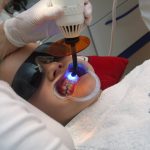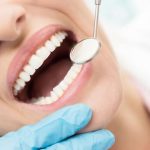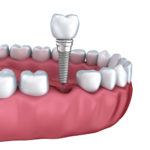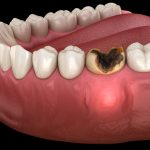Longevity of Dental Caps: How Many Years Can You Expect Them to Last?
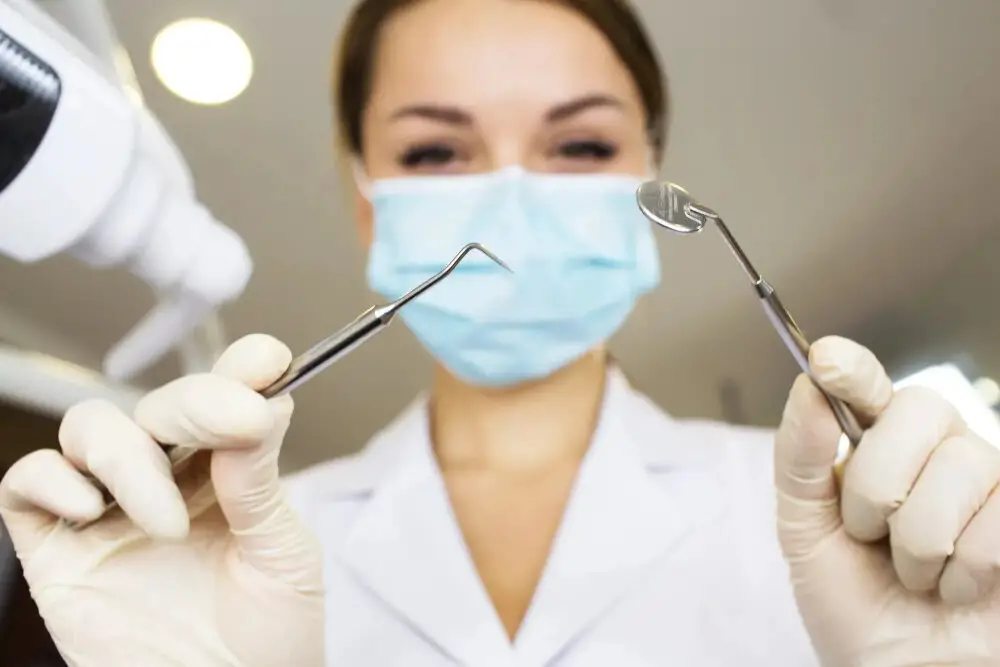
Dental caps are an effective way to restore teeth that have been damaged or weakened by decay, injury, or other factors. They are designed to cover the entire visible portion of the tooth, providing an extra layer of protection and improving its appearance. However, one of the most common questions that patients have is how long their dental caps will last. While there is no definitive answer, there are several factors that can affect the longevity of dental caps, including the materials used, the patient’s oral hygiene habits, and the quality of the restoration. One of the most important factors in determining the longevity of dental caps is the material used to make them. There are several different types of materials available, including porcelain, ceramic, gold, and composite resin. Each of these materials has its own unique properties and advantages, but they also have different levels of durability and resistance to wear and tear. A skilled dentist or prosthodontist can help patients choose the right material based on their specific needs and preferences, as well as the condition of their teeth and gums. Additionally, regular dental check-ups and cleanings are essential for maintaining the health and longevity of dental caps, as well as preventing other oral health issues that can compromise their integrity.
Dental caps, also known as dental crowns, are prosthetic devices that are used to restore the shape, size, and function of damaged or decayed teeth. They are custom-made to fit over the entire surface of a tooth and are typically made from materials such as porcelain, ceramic, or metal. The purpose of dental caps is to provide a strong, durable, and aesthetically pleasing solution to a variety of dental problems, including chipped, cracked, or severely decayed teeth, as well as teeth that have undergone root canal treatment. By covering the entire tooth, dental caps can help to protect it from further damage and improve its overall appearance and function, thereby enhancing both the health and appearance of the patient’s smile.
Dental caps, also known as dental crowns, are a common restorative solution for damaged or decayed teeth. Longevity is an important factor to consider when deciding on the type of crown to use. The longer a dental cap lasts, the less likely it is to need replacement, saving time and money in the long run. Factors that can affect the longevity of dental caps include the material used, the quality of the placement, and the patient’s oral hygiene habits. A well-maintained dental cap can last up to 15 years or more, providing a durable and reliable solution for dental restoration. Therefore, it is crucial to choose the right type of dental cap and maintain good oral hygiene to ensure the longevity of the crown.
Factors Affecting Longevity of Dental Caps
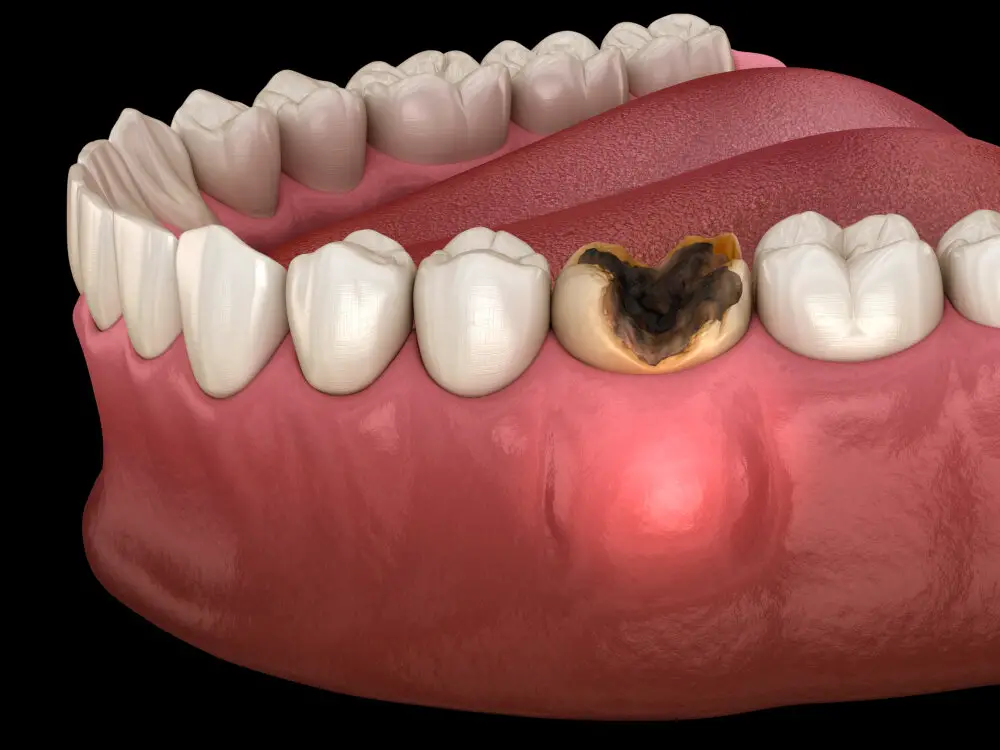
Dental caps, also known as dental crowns, are commonly used to restore damaged or decayed teeth. These caps are designed to last for many years, but their longevity can be affected by a variety of factors. One of the most important factors affecting the longevity of dental caps is the quality of the materials used. High-quality caps made from durable materials such as zirconia or porcelain can last for 10 to 15 years or even longer. However, cheaper materials may not be as durable and may need to be replaced sooner. Another important factor affecting the longevity of dental caps is the level of oral hygiene practiced by the patient. Good oral hygiene can help to prevent decay and gum disease, which can lead to the deterioration of the cap and the tooth underneath. Patients should brush their teeth twice a day and floss regularly to keep their teeth and gums healthy. Additionally, regular dental check-ups and cleanings can help to detect any issues early on and prevent them from becoming more serious. Overall, the longevity of dental caps depends on a combination of factors, including the quality of the materials used and the level of oral hygiene practiced by the patient.
The material of the cap is a crucial factor in determining its longevity. There are several types of materials used to make dental caps, including porcelain, zirconia, and metal alloys. Porcelain is the most commonly used material, as it closely resembles natural teeth and is highly durable. Zirconia is a newer material that is gaining popularity due to its strength and resistance to chipping. Metal alloys, such as gold and silver, are also used, but are less aesthetically pleasing and may cause allergic reactions in some patients. The choice of material depends on the patient’s needs and preferences, as well as the location of the tooth being capped. Proper care and maintenance are also vital in extending the lifespan of the cap, regardless of the material used.
Maintenance and oral hygiene habits are essential for the longevity of dental caps. It is crucial to maintain good oral hygiene habits, such as brushing twice a day, flossing regularly, and using mouthwash, to prevent the buildup of plaque and bacteria around the dental cap. Additionally, avoiding hard and sticky foods can also help to prolong the lifespan of dental caps. Regular dental check-ups and cleanings are also recommended to ensure that the cap is still intact and in good condition. Neglecting oral hygiene can lead to gum disease, decay, and other dental problems that can compromise the integrity of the dental cap, reducing its lifespan and effectiveness. Therefore, it is vital to prioritize good oral hygiene habits to ensure the longevity of dental caps.
The location of a dental cap in the mouth can vary depending on the specific tooth that is being treated. Dental caps, also known as dental crowns, are typically used when a tooth has been severely damaged or decayed and needs to be reinforced and protected. They are custom-made to fit over the existing tooth, covering it completely and extending all the way down to the gum line. The cap is cemented in place and provides a strong, durable surface for biting and chewing. The placement of the cap is crucial to ensure proper alignment and function of the teeth, as well as to maintain a natural appearance. With proper care, dental caps can last for many years, providing a long-lasting solution for damaged or weakened teeth.
Bruxism, also known as teeth grinding, is a habit that affects many individuals and can cause damage to dental caps. The excessive pressure placed on the teeth during grinding can cause the caps to crack or even become dislodged. Other habits that can affect the longevity of dental caps include nail-biting, chewing on hard objects, and using teeth as tools, such as opening bottles. These habits can cause the caps to wear down and become weakened over time, leading to the need for replacement. It is important for individuals with dental caps to be mindful of their habits and take steps to protect their dental work for long-term durability.
Average Lifespan of Dental Caps

Dental caps, also known as dental crowns, are a common dental restoration procedure used to cover and protect a damaged or weakened tooth. They are made of various materials, including porcelain, ceramic, gold, and metal alloys, and are designed to mimic the appearance and function of natural teeth. One of the most common questions patients have about dental caps is how long they can expect them to last. Unfortunately, there is no one-size-fits-all answer to this question, as the longevity of dental caps can vary widely depending on a variety of factors. Generally speaking, dental caps can last anywhere from 5 to 15 years or more, depending on factors such as the type of material used, the quality of the restoration, the patient’s oral hygiene habits, and the amount of wear and tear the cap is subjected to over time. Porcelain and ceramic caps tend to be more fragile than metal or gold caps, and may be more prone to chipping or cracking over time. However, they are also more aesthetically pleasing and can be color-matched to blend in seamlessly with the patient’s natural teeth. Ultimately, the lifespan of a dental cap will depend on a variety of factors, and patients should work closely with their dental provider to develop a personalized plan for long-term dental health and maintenance.
Statistics and studies have shown that the average lifespan of dental caps can range from 5 to 15 years, depending on various factors. These factors include the material used for the cap, the patient’s oral hygiene habits, and the severity of the original tooth damage. For example, porcelain caps tend to last longer than resin caps, while patients who brush and floss regularly can extend the lifespan of their caps. Furthermore, caps that are used to repair more severe damage, such as those caused by trauma or decay, may have a shorter lifespan than caps used for purely cosmetic purposes. Overall, it is important for patients to maintain regular dental check-ups and follow their dentist’s recommendations for proper care and maintenance to ensure the longevity of their dental caps.
The lifespan of dental caps can be influenced by various factors such as the material used for the cap, the quality of the adhesive used, the oral hygiene routine of the patient, the amount of force exerted on the cap, and the frequency of dental check-ups. Porcelain and zirconia caps are highly durable and resistant to wear and tear, whereas resin-based caps are more prone to chipping and staining. The quality of the adhesive used to attach the cap also plays a crucial role in its longevity, as a weak adhesive can cause the cap to come loose or fall off. Good oral hygiene practices, such as brushing and flossing regularly, can prevent bacterial growth and decay around the cap. Excessive force, such as clenching or grinding teeth, can cause the cap to crack or dislodge. Regular dental check-ups can help detect any issues with the cap early on and prevent further damage.
Signs That Your Dental Cap Needs To Be Replaced
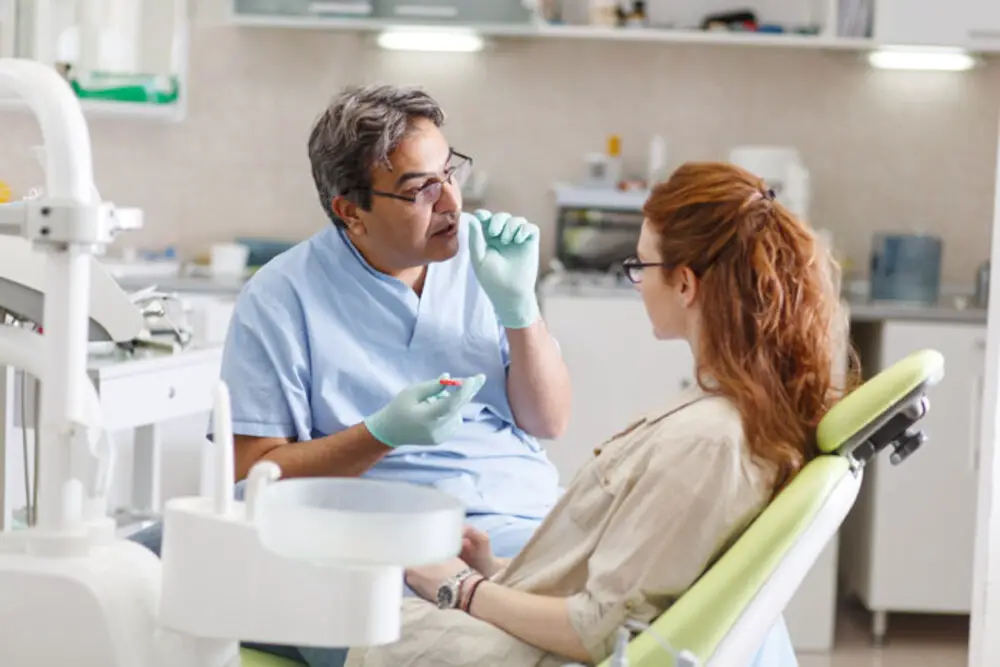
Dental caps or crowns are an effective way to restore the appearance and function of a damaged or weakened tooth. However, like any dental restoration, dental caps have a limited lifespan and may eventually need to be replaced. There are several signs that your dental cap may need to be replaced, including visible damage or wear, discomfort or sensitivity, and changes in the appearance of the cap. One of the most obvious signs that your dental cap needs to be replaced is visible damage or wear. This may include cracks or chips in the cap, or discoloration or staining that cannot be removed with normal cleaning. In some cases, the cap may even become loose or fall out completely, indicating that it is no longer providing the necessary support and protection for the underlying tooth. If you notice any of these signs, it is important to schedule an appointment with your dentist as soon as possible to have the cap evaluated and replaced if necessary. Another common sign that your dental cap needs to be replaced is discomfort or sensitivity in the affected tooth. This may include pain or sensitivity when biting or chewing, or a dull ache or throbbing sensation that persists even when the tooth is not in use. This may be caused by a variety of factors, including damage to the cap or underlying tooth structure, or an infection or other issue affecting the root of the tooth. If you are experiencing any of these symptoms, it is important to seek prompt dental care to identify the underlying cause and determine whether the cap needs to be replaced.
Physical signs of wear and tear on dental caps are indicative of the longevity of the restoration. Over time, dental caps will gradually show signs of wear and tear, such as discoloration, chipping, cracking, or even outright breakage. These physical signs can be caused by a variety of factors, including normal wear and tear, trauma, or poor oral hygiene. Additionally, the type of material used to make the cap can also impact its lifespan. While some materials may last longer than others, it is important to note that proper care and regular dental check-ups can help to extend the lifespan of any dental cap.
One of the most common complaints associated with dental caps is pain or discomfort. This can occur for a variety of reasons, including the placement process, an ill-fitting cap, or an underlying dental issue. Patients may experience sensitivity to hot or cold temperatures, pressure, or even a sharp pain when biting down. In some cases, the pain may be temporary and resolve on its own, while in others, it may persist and require a visit to the dentist. It is important to address any discomfort associated with a dental cap promptly to ensure the longevity of the cap and prevent any further damage to the tooth.
Other symptoms indicating a problem with the dental cap can include sensitivity to hot or cold foods and drinks, discomfort when biting or chewing, a visible crack or chip in the cap, or a change in the color or texture of the surrounding teeth or gums. These symptoms can be indicative of a loose or damaged cap, which may require immediate attention from a dentist to prevent further damage or infection. Additionally, if a patient experiences persistent pain or inflammation around the capped tooth, this may be a sign of an underlying issue such as infection or decay and should be addressed as soon as possible to maintain the longevity of the cap and overall oral health.
Tips for Extending the Lifespan of Your Dental Caps

Dental caps, also known as dental crowns, are placed over damaged or weakened teeth to protect and strengthen them. They are composed of various materials such as porcelain, ceramic, or metal, and are designed to mimic the natural appearance of teeth. The lifespan of dental caps can vary depending on several factors, including oral hygiene, diet, and the quality of the material used. To extend the lifespan of your dental caps, there are several tips you can follow. Firstly, maintaining good oral hygiene is essential for the longevity of your dental caps. Brushing twice a day and flossing daily can help remove plaque and bacteria that can cause decay or damage to your caps. Additionally, using an antiseptic mouthwash can help eliminate harmful bacteria and keep your mouth healthy. It is also important to visit your dentist regularly for check-ups and cleanings to ensure that your caps are in good condition and to detect any issues early on. By following these tips, you can help extend the lifespan of your dental caps and maintain a healthy smile.
Proper oral hygiene habits and maintenance are crucial for the longevity of dental caps. Brushing twice a day, flossing daily, and using an antimicrobial mouthwash can help prevent plaque buildup that can weaken the bond between the cap and tooth. It is also important to avoid biting down on hard objects and to wear a mouthguard during sports to prevent damage to the caps. Regular dental checkups should be scheduled to monitor the condition of the caps and ensure that there are no signs of decay or gum disease. By following these habits and maintaining good oral hygiene, dental caps can last for many years and provide a strong, protective covering for damaged or weakened teeth.
To ensure the longevity of dental caps, it is crucial to avoid certain habits that can cause damage. Firstly, grinding or clenching one’s teeth can put excessive pressure on the cap, leading to cracks or fractures. Secondly, chewing on hard objects such as ice or pens can cause the cap to break or loosen from the tooth. Furthermore, biting into foods that are too hard or sticky can also damage the cap. Additionally, neglecting proper oral hygiene, such as brushing and flossing regularly, can lead to decay around the cap, compromising its integrity. Lastly, avoiding regular dental check-ups can result in undetected issues that can ultimately lead to the failure of the cap. By being mindful of these habits and practicing good oral hygiene, one can help ensure the longevity of their dental caps.
Regular dental checkups and cleanings are crucial for maintaining the longevity of dental caps. These appointments allow dentists to identify any potential issues and address them before they become more serious problems. Professional cleanings remove built-up plaque and tartar that can lead to decay or gum disease, which can compromise the integrity of dental caps. Additionally, regular checkups provide an opportunity for dentists to evaluate the fit and function of existing dental caps and make any necessary adjustments or replacements. Consistently scheduling and attending regular dental appointments can help ensure the long-lasting durability and effectiveness of dental caps, ultimately benefiting the overall health and appearance of your smile.
The longevity of dental caps is influenced by various factors, including the quality of materials used, the skill of the dentist in fitting the cap, and the patient’s oral hygiene practices. Caps made of high-quality materials such as porcelain or zirconia tend to last longer than those made of cheaper materials. Additionally, the skill of the dentist in fitting the cap can affect its longevity as a poorly fitted cap can lead to decay or damage to the underlying tooth. Finally, good oral hygiene practices, including regular brushing and flossing, can help to extend the life of the cap. Patients who take care of their dental caps can expect them to last anywhere from 5 to 20 years, depending on these factors.
Regular dental checkups and maintenance are crucial in ensuring the longevity of dental caps. Dental caps, also known as dental crowns, are designed to protect and strengthen damaged teeth. However, they are not indestructible and can be prone to wear and tear over time. That’s why it’s important to have regular dental checkups to monitor the condition of the caps and ensure they are functioning properly. Dentists can also perform maintenance procedures, such as polishing and cleaning, to extend the life of the caps. Neglecting regular dental checkups and maintenance can lead to issues such as decay, gum disease, and even the need for replacement caps, which can be costly and time-consuming. Therefore, it’s essential to prioritize regular dental care to ensure the longevity of your dental caps and maintain optimal oral health.
Conclusion
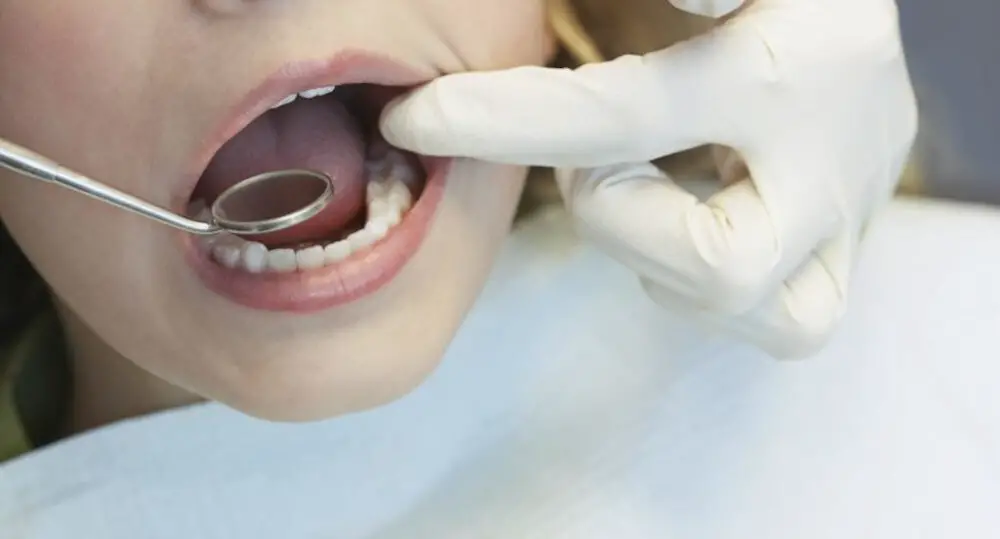
In conclusion, the longevity of dental caps largely depends on various factors such as the material used, oral hygiene practices, and lifestyle habits of the patient. While some dental caps can last up to 20 years, others may need to be replaced every 5-10 years. It is crucial for patients to maintain good oral hygiene practices and schedule regular dental check-ups to ensure the longevity of their dental caps. Additionally, avoiding harmful habits such as teeth grinding and using teeth as tools can significantly extend the lifespan of dental caps. Ultimately, patients should work closely with their dentist to determine the best course of action for their individual needs and ensure the longest possible lifespan of their dental caps.
